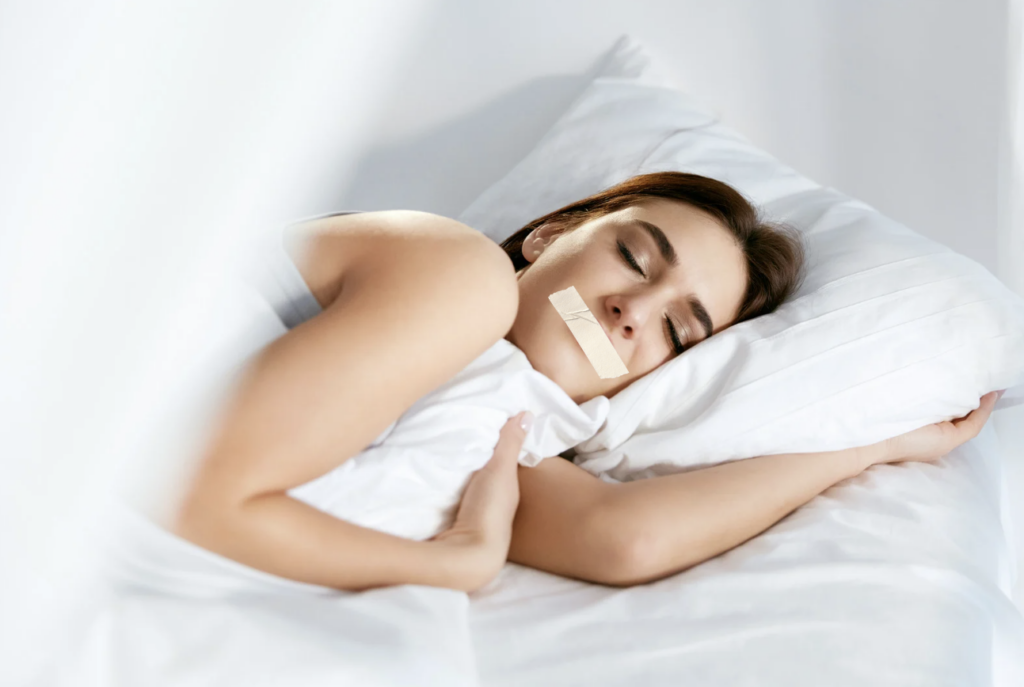Alternative Treatments
How to Tape Your Mouth For Better Sleep
If you’ve been having trouble sleeping or snoring is making you mad, try an easy fix: tape your mouth shut and have good sleep. By properly closing your mouth while you sleep, you can improve your breathing, stop snoring, and get a better, more restful sleep.
The Importance of Quality Sleep
A good night’s sleep is critical to our overall health. It allows our bodies and minds to recharge and mend themselves, allowing us to wake up feeling refreshed and ready to face the day ahead. Many people, however, fail to get enough sleep, typically due to conditions such as snoring or sleep apnea. These circumstances can have a substantial impact on our sleep quality, leaving us weary and cranky.
What is Mouth Taping?
Mouth taping is a simple procedure that entails placing a small piece of tape over your lips to ensure nasal breathing all night. By doing so, you encourage yourself to breathe through your nose, which has several health and sleep benefits.

Benefits of Mouth Taping for Better Sleep
Incorporating mouth taping into your nighttime routine can have a significant impact on the quality of your sleep. Here are some of the advantages you might anticipate:
Alleviates Sleep Apnea
Sleep apnea is a common sleep disorder that causes pauses in breathing while sleeping. Mouth taping encourages nasal breathing, which reduces the likelihood of airway blockages and improves oxygen intake. Mouth taping, by guaranteeing a constant flow of air, can improve sleep apnea symptoms and contribute to a more comfortable sleep.
Increases Oxygen Intake
When opposed to mouth breathing, breathing through the nose provides for more oxygen intake. The nasal passages filter, warm, and humidify the air we breathe, ensuring that it reaches our lungs in the best possible condition. Taping your mouth encourages nasal breathing, resulting in more efficient oxygen exchange and better overall sleep quality.
Reduces Dry Mouth
Dry mouth from mouth breathing can be painful and disruptive to sleep. Using mouth tape to seal your lips prevents moisture loss and keeps your mouth hydrated all night. This can help alleviate dry mouth symptoms and make sleeping more comfortable.
Enhances Focus and Energy Levels
Sleep is essential for cognitive function and daytime productivity. You can wake up feeling more refreshed, alert, and focused if you improve your sleep quality using mouth taping. This can improve your energy levels and general performance throughout the day.
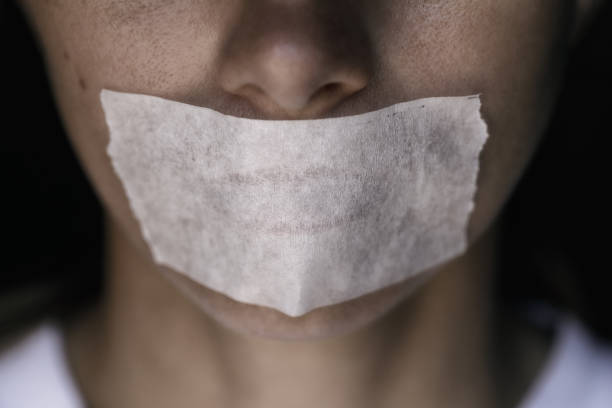
How to Properly Mouth Tape
While lip taping is a basic method, it is critical to apply it correctly for the best results. Here’s a step-by-step instruction to correctly apply lip tape:
- Choose the Right Tape: Choose a mild, Hypoallergenic Tape: put a mild, hypoallergenic tape that is safe to put on the delicate skin around your mouth. Tapes with strong adhesives or abrasive textures should be avoided as they may cause discomfort or skin irritation.
- Prepare Your Skin: Make sure your lips and surrounding region are clean and dry before putting the tape. This will ensure that the tape attaches properly and remains in place all night.
- Apply the Tape: Cut a tiny piece of tape about 1-2 inches long. Gently push one end of the tape into the center of your upper lip, right behind the nose. Attach the other end of the tape to the center of your lower lip after stretching it across your lips. Check that the tape is secure but not too tight.
- Nasal Breathing Exercise: Once the tape is in place, concentrate on breathing through your nose. It may take some time to acclimate, especially if you’re used to breathing through your lips. Allow your body to adjust to the new breathing pattern by being patient.
- Monitor and adjust: Use a mouth tape to track how you feel during and after sleep. Adjust the tape or try a different type of tape if you have any discomfort or difficulties breathing. It is critical to identify the method that works best for you.
Remember, before adopting mouth taping into your sleep pattern, consult with a healthcare expert, especially if you have any underlying health disorders or concerns.
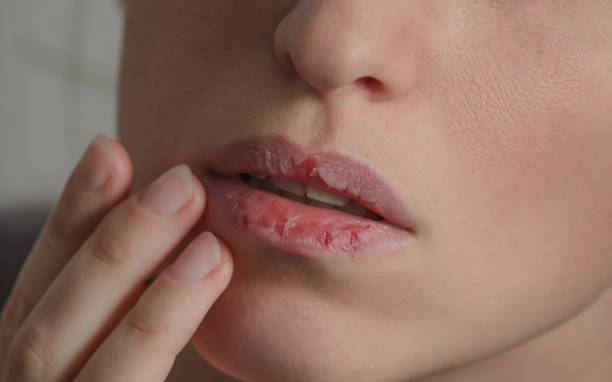
Common Concerns and Misconceptions about Mouth Taping
While there are numerous advantages to using mouth tape, certain concerns and misconceptions have developed. Let us have a look at a few of them:
Feeling Claustrophobic
One common concern is that taping your mouth may make you feel claustrophobic or constrained. It is crucial to note, however, that mouth tape is not intended to seal your lips shut. It should allow you to move freely while allowing you to breathe easily via your nose. If you feel any discomfort, try a smaller piece of tape or a different type of tape that is less restricting.
Dry or Sore Lips
Using the wrong sort of tape or applying it too tightly can result in dry or painful lips. Choose a soft tape and avoid pushing it too tightly across your lips. Applying a hydrating lip balm before bedtime can also help keep your lips hydrated and avoid dryness.
Dependency on Mouth Tape
Some people are concerned that they will grow addicted to mouth tape and will be unable to sleep without it. While mouth tape can be useful in training oneself to breathe through your nose, it is not intended to be a long-term solution. As your body adjusts, the goal is to enhance your breathing practices and eventually eliminate the need for tape.
Tips for Maximizing the Effectiveness of Mouth Taping
Here are some things you should think about to get the most out of mouth-taping:
Practice Good Sleep Hygiene: Set a regular sleep routine, make your bedroom comfortable, and avoid using electronics right before bed. This is called good sleep hygiene. These habits can make mouth tape work better and help you sleep better generally.
Stay Hydrated: If you drink enough water during the day, you won’t have a dry mouth at night. Make sure you drink enough water every day and while you sleep to keep your body well-hydrated.
Be Patient: Your body might need some time to get used to mouth tape. Allow yourself some time to get used to the new way of breathing. Keep at it and check in on your success over time to see how you’re doing.
Request Help from a Professional: If you have any health issues or worries, you should always talk to a medical professional before starting mouth taping. They can give you personalized help and answer any questions you may have.
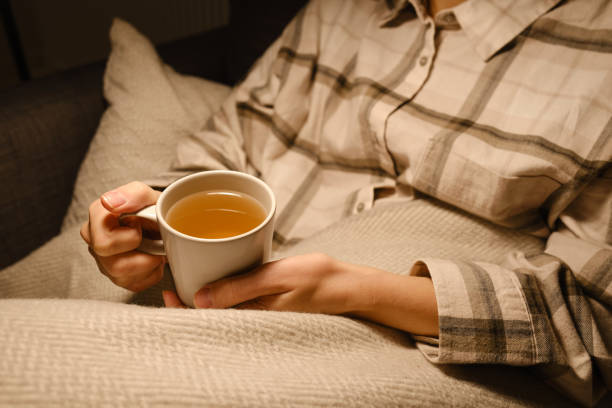
Other Natural Remedies for Better Sleep
While mouth taping is an effective strategy for enhancing sleep quality, it is not the only one. Here are some more natural sleep aids you may integrate into your routine:
- Maintain a consistent sleep routine.
- Make a soothing nighttime ritual.
- Make certain that your sleeping environment is cold, dark, and quiet.
- Limit caffeine and alcohol consumption, especially near bedtime.
- Use relaxation techniques like deep breathing or meditation.
- Exercise on a regular basis, but avoid strenuous workouts close to bedtime.
Mouth Taping Alternatives
If mouth taping does not feel like the right fit for you, there are other options to consider. Among the alternatives are:
- Nasal Dilators: These are little devices that are put into the nostrils to keep them open during sleeping, facilitating nasal breathing.
- Chin straps: Chin straps are used to keep your jaw locked, reducing mouth breathing and encouraging nasal breathing.
- Oral appliances: These are custom-made devices that are worn in the mouth to help align the jaw and tongue to enhance nasal breathing.
It’s vital to note that the efficacy of these options varies based on individual characteristics and sleep conditions. Consultation with a healthcare professional can assist you in determining the best solution for your specific needs.
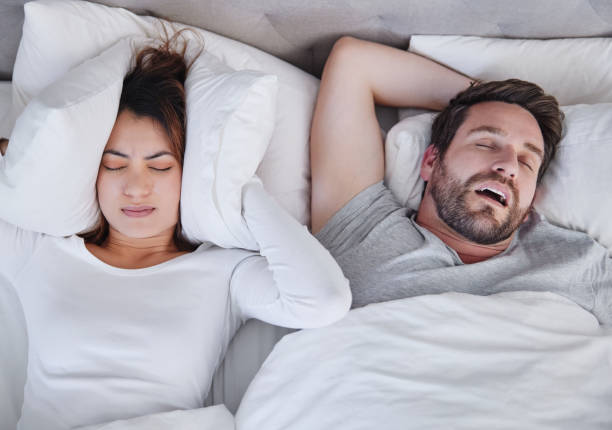
Mouth Taping for Specific Sleep Issues
Mouth taping is very useful for resolving specific sleep difficulties like snoring or sleep apnea. Here’s how it can assist:
Snoring
Snoring is frequently caused by airway obstruction, which is usually caused by relaxed throat muscles or obstructed nasal passages. Mouth taping can help prevent snoring by guaranteeing a clean airway and fostering a better breathing pattern by increasing nasal breathing.
Sleep Apnea
Sleep apnea is a sleep disorder marked by pauses in breathing while sleeping. By encouraging nasal breathing and decreasing the risk of airway blockages, mouth taping can be a useful supplemental method for alleviating sleep apnea symptoms.
If you suspect you have sleep apnea or suffer from chronic snoring, it’s critical to see a doctor for a thorough evaluation and correct diagnosis. Based on your specific needs, they can propose appropriate treatment alternatives, such as mouth taping.
Conclusion
Tape to the mouth can help improve sleep and well-being. You may improve your breathing, stop snoring, and sleep better by boosting nose breathing and lowering mouth breathing.
Start slowly and give yourself time to adjust to mouth taping. Be patient and consistent, and see a doctor if you have health issues.

